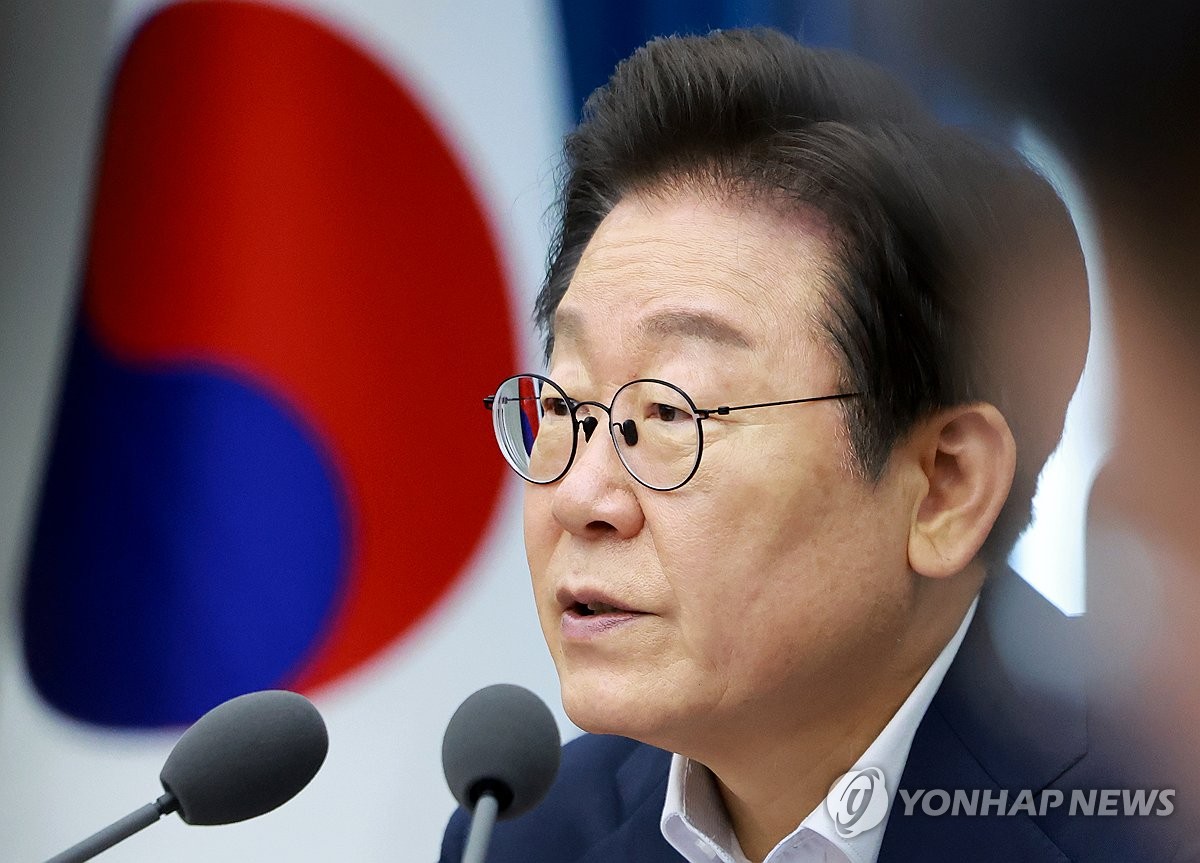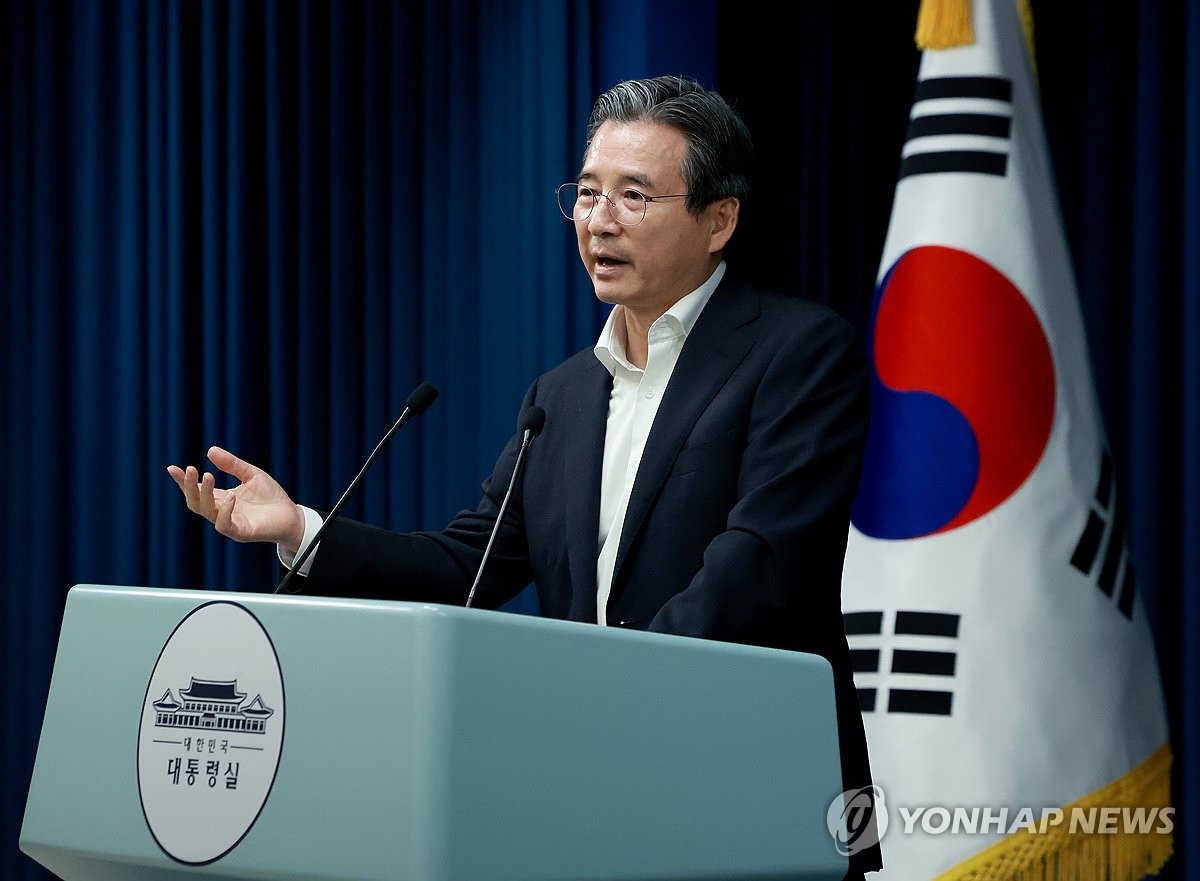(ATTN: UPDATES with more comments, details in paras 8-13; ADDS photo)
By Kim Eun-jung
SEOUL, July 31 (Yonhap) — President Lee Jae Myung said Thursday a tariff deal reached by South Korea and the United States will help eliminate economic uncertainties for the South’s export-reliant economy, voicing relief for clearing a major hurdle in the trade sector.
Lee wrote the message on Facebook, shortly after U.S. President Donald Trump said his administration has agreed to impose 15 percent reciprocal tariffs on South Korea, 10 percentage points lower than what was proposed.
“We have cleared a major hurdle,” Lee said. “Through this agreement, the government has eliminated uncertainties in the export environment and created conditions for our companies to compete on equal or superior terms with major countries.”
Lee noted that the US$350 billion investment pledged by South Korea will solidify the foundation for bilateral cooperation in strategic industries, such as shipbuilding, semiconductors, secondary batteries, biotechnology and energy.
In particular, $150 billion will be committed exclusively to supporting the entry of South Korean shipbuilders into the U.S. shipbuilding industry, he said.
The two sides also agreed to cut tariffs on Korean automobiles — a key export to the U.S. — from 25 percent to 15 percent, Kim Yong-beom, the presidential chief of staff for policy, told reporters.
Kim added that while rice and beef remained contentious issues during the talks, South Korea did not agree to further open its markets in those sectors.

President Lee Jae Myung speaks during a meeting of an emergency economy review task force at the presidential office in Seoul on July 30, 2025. (Yonhap)
The deal did not include sensitive items, such as Seoul’s import ban on American beef from cattle aged 30 months or older, proposed regulations on online platforms, and restrictions on exports of high-precision map data.
“The U.S. strongly pushed for opening agricultural and livestock markets during negotiations, but both sides agreed not to further open Korea’s rice and beef markets given the food security concerns and sensitivity of the agricultural sector,” Kim said.
The agreement also contains a clause guaranteeing South Korea “most-favored nation” treatment in the semiconductor and pharmaceutical sectors when the U.S. imposes tariffs on those items, he added.
Touching on the $150 billion commitment to shipbuilding industry cooperation, Kim called it a “significant step” toward strengthening bilateral ties. The initiative will cover the full cycle of the sector, from vessel construction and maintenance to repair, overhaul and shipbuilding equipment.
“Combining the world-class design and construction capabilities of Korean shipbuilders with the software strengths of U.S. companies is expected to generate significant synergy in next-generation fields, such as autonomous vessels,” he said.
The rest of the $200 billion fund will be pledged to strategic sectors, including semiconductors, nuclear power, secondary batteries and biotechnology, which is expected to help support the entry of competitive Korean companies into the U.S. market.

Kim Yong-beom, the presidential chief of staff for policy, announces that South Korea has clinched a trade deal with the United States during a press briefing held at the presidential office in Seoul on July 31, 2025. (Yonhap)
ejkim@yna.co.kr
